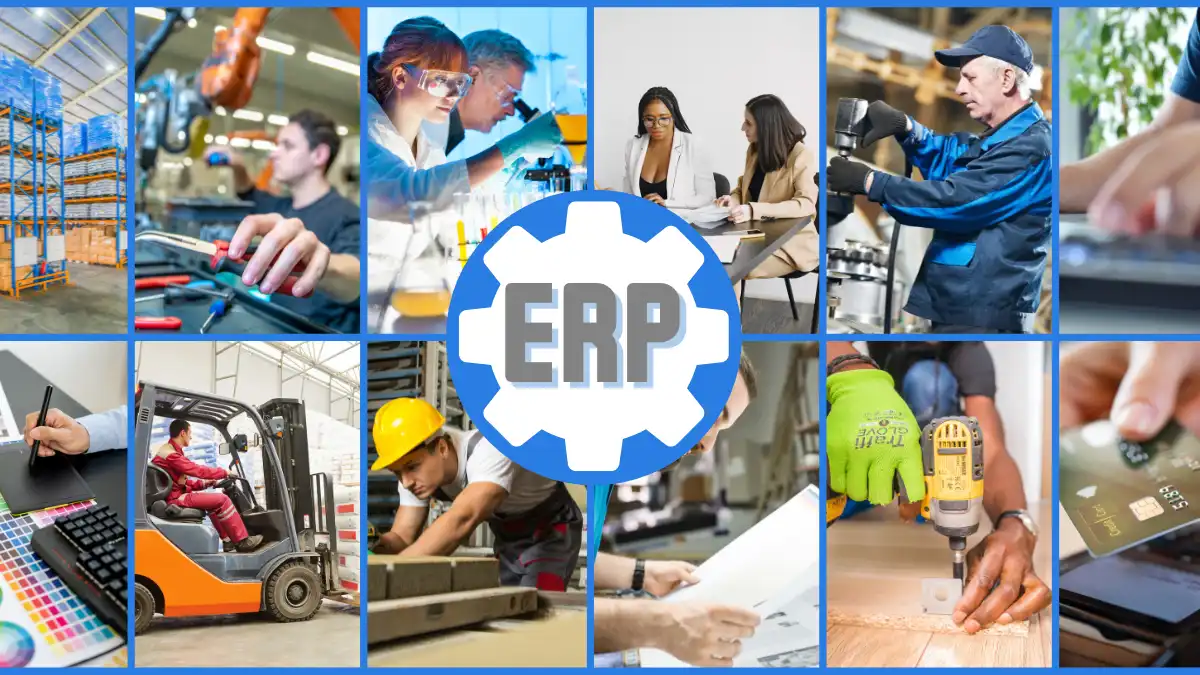How is standardised ERP software suitable for different types of companies?

In today's business landscape, the need for efficient and integrated resource management is crucial for the success of businesses operating in diverse sectors. In this context, a standardized and simplified ERP software emerges as a flexible and highly adaptable solution, capable of successfully meeting the needs of companies involved in distribution, commerce, production, assembly, and professional services.
For distribution and commerce companies, ERP software offers modules dedicated to inventory management, orders, and logistics, ensuring complete visibility of goods flows and optimal control of operations. In the production and assembly sector, ERP proves valuable for production planning, quality control, and facility management, contributing to optimizing processes and reducing operational costs.
Companies providing professional services benefit from ERP through centralized management of human resources, project planning, and efficient billing. The adaptability of the software allows customization of workflows based on the specific needs of the services sector, enabling performance optimization and better customer satisfaction.
The strength of standardized ERP software also lies in its ability to easily integrate into complex business environments. Companies can benefit from data consistency across various functions, from the financial department to human resource management, facilitating analysis and informed decision-making.
In conclusion, the versatility of standardized ERP software not only simplifies the day-to-day management of business activities but also offers specific and customized solutions that address the unique challenges of each sector.
Let's delve deeper into how standardized and simplified ERP software can successfully adapt to different types of companies thanks to a series of key factors.
Modularity
Standardized ERPs are often designed with a modular architecture that allows companies to select and implement only the modules necessary for their operations. This enables flexible implementation, adapting to the specific needs of different industries.
Customization
Despite standardization, many ERP systems allow some customization. This means that companies can adjust the software to respond to the specific needs of their industry, making configuration changes without having to develop a completely customized system.
Best Practices
Standardized ERPs often incorporate industry best practices into their design. This means that companies can benefit from optimized processes and proven approaches that have already been implemented in similar businesses.
Cost Reduction
Adopting standardized ERP software can lead to cost reduction in terms of development, implementation, and maintenance compared to a custom ERP system. This cost reduction can be particularly advantageous for small and medium-sized enterprises.
Continuous Updates and Improvements
Standardized ERPs are generally supported by vendors who regularly provide updates and improvements to their solutions. This allows companies to stay up-to-date with the latest technologies and adapt to changes in the market without facing costly development operations.
Ease of Implementation
Implementing standardized ERP software often requires less time compared to a customized solution, allowing companies to start benefiting from its features more quickly.
Conclusions
In summary, standardized and simplified ERP software can work well for various types of companies due to its flexibility, modularity, customizability, incorporation of best practices, cost reduction, and continuous support from vendors. However, it's essential to remember that the effectiveness of an ERP system also depends on various factors, including the choice of the vendor, proper implementation, and managing organizational change within the organization.
Some additional details or specific considerations may be necessary to tailor the response to the particular needs of a company or specific industry. Additionally, it's always advisable to conduct a detailed analysis of business needs before adopting an ERP system, regardless of its standardization, to ensure that it fully meets the specific requirements of the organization.
So Smart is the easiest and quickest way to enter the world of Microsoft Dynamics 365 Business Central. The solution that helps you automate processes, monitor real-time data, generate analytical reports, and ensure compliance. So Smart is the cloud solution accessible from any browser, but you can also access it from your computer, smartphone, or tablet by installing the dedicated app to monitor and plan your activities at any time, and it's 100% Microsoft software.
